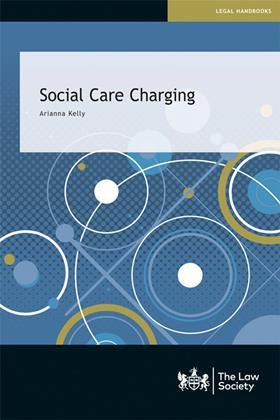Fiona Heald reviews a new Law Society title on charges for care under the Care Act 2014

Social Care Charging by Arianna Kelly is a very welcome addition to the subject. It brings together the relevant legislations, statutory guidance and case law to help explain the complex world of social care charging. The book deals with people who need or want to request funding, and explains when such funding should be asked for. It also explains what assets and income should and – possibly more importantly – should not be taken into account when requesting funding. Reading this book will ensure that you can provide timely advice on the subject – and not just when a client has run out of funds and potentially spent on care that they did not need to!
The book is written so that it can be read in its entirety – which I would recommend, as, at around 200 pages (excluding lists and legislation) it is not a long read – or be dipped into for a specific matter relating to a particular client. All aspects of that matter are brought together in one place so you don’t need to search through the book for multiple sections. This means that there is a small element of repetition in the book, but it is better in practice to have it that way.
The book is divided into helpful chapters covering an introduction and financial assessments and then moves onto the usual suspects: capital and the disregards, income and the disregards, direct payments, deprivation of assets, top-ups, deferred payment agreements and debt recovery.
While the first two chapters are a little dry, this is to be expected with the area of law. The book really comes alight with the remaining nine chapters and shows what additional value there is with Arianna’s commentary. She provides an understanding of not only what is meant by the various sections of law, but also how it is implemented. Particular highlights for me are the sections on:
- different debts and how these should be dealt with, not only with regards to the assessment but also their payment
- valuation of joint property, giving a full explanation of what the law is and distinguishing between the various cases on the subject in a most helpful way, with examples throughout
- property disregards and an excellent flow chart showing if a property may be disregarded
- how to show that a relative is incapacitated so the property should be disregarded
- the chapter on deprivation of assets, and examples of what has been and not been considered deprivation
- top-ups – when they are due and who can pay them (and if they should).
Having the law and an explanation with examples all in one place is not only extremely useful but also saves you time.
There are some areas where more commentary would be welcome, as the law is dry and confusing, and clear explanations would be appreciated. I would have liked to see more commentary with regards to income disregards, especially differentiating between those from personal injury and non-personal injury sources. Also, with the minimum income guarantee, while there is a very helpful table setting out the amounts allowed to enable the total to be calculated, later on in the book, the amounts shown in the legislation are different and an explanation of why this is would be useful.
The book also deals with the care cap, so it may need to be updated if this ever comes to be.
Finally, there are helpful appendices containing the relevant legislation and statutory instruments, as well as lists of these, and case law. The book also has a very helpful list of the many acronyms used in this area of law. However, I would have liked to see a list of the Local Government and Social Care Ombudsman cases, too.
Nevertheless, this book will be valuable for those who know the subject well and for those that want to learn more, and I will be keeping it close to hand.



